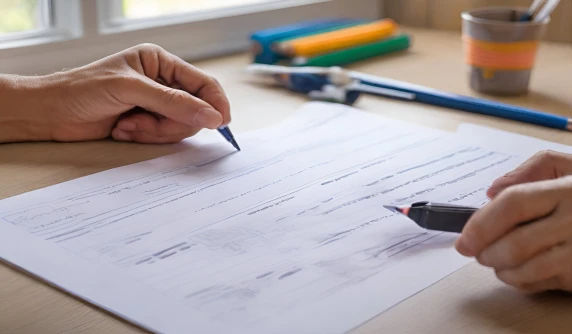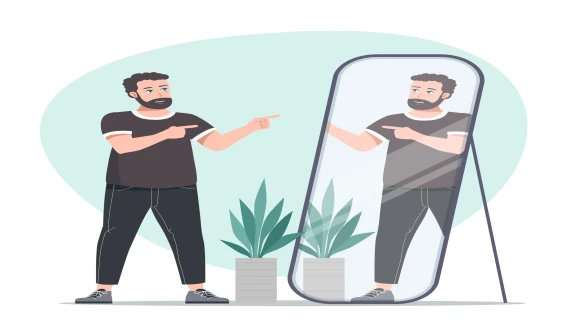
Every individual is born with a unique set of talents, skills, and strengths that set them apart. These personal strengths are the key to unlocking our potential, achieving our goals, and living a fulfilling life.
This article provides 15 insightful ways to identify your personal strengths, empowering you to understand and leverage them in every aspect of your life.
1. Self-Reflection: The Foundation of Strength Discovery
Reflecting on your own qualities, experiences, and passions is the first step to identify your personal strengths. Be mindful of what energizes you, what you excel in, and what you take pride in.
-
Personal Accomplishments: Reflect on your past achievements and identify the strengths that contributed to these successes.
-
Passions and Interests: What activities do you enjoy the most? Often, what we love doing aligns with our innate strengths.
-
Natural Abilities: Consider the tasks that you perform effortlessly. These are indicators of your inherent strengths.

2. Leveraging Feedback: Uncovering Hidden Strengths
Feedback from others can provide valuable insights into your strengths, especially the ones that you may not be aware of.
-
Professional Feedback: Review performance evaluations, peer reviews, and other professional feedback you've received.
-
Personal Feedback: Consider the compliments and constructive criticism you have received from friends, family, and mentors.
-
Strengths Spotting: Ask trusted individuals to list what they believe are your strengths.
3. Strength in Adversity: Identifying Strengths in Challenges
Challenges and adversities often reveal our true capabilities. Reflecting on how you've handled difficult situations can help you identify your personal strengths.
-
Resilience: How have you bounced back from setbacks? Your ability to recover from adversity indicates resilience, a significant personal strength.
-
Problem-Solving Skills: Reflect on how you've navigated complex situations or solved problems. This can reveal strengths such as creativity, critical thinking, and initiative.
-
Growth from Failure: Consider instances where you've learned from failure. This suggests strengths like adaptability, perseverance, and a growth mindset.
4. Strengths in Everyday Activities: The Joy of Effortless Tasks
Observing how you perform everyday activities can also reveal unique strengths.
-
Energy Audit: Notice which tasks energize you and which drain you. Activities that energize you are often aligned with your personal strengths.
-
Flow State: Identify activities where you lose track of time or enter a state of flow. These activities likely tap into your inherent strengths.
5. Self-Assessment Tools: Guided Exploration of Strengths
There are several self-assessment tools available that can help you identify your personal strengths.
-
VIA Character Strengths Survey: This survey identifies your top character strengths based on positive psychology research.
-
StrengthsFinder: This tool helps identify your top strengths, offering insights on how to leverage them.
-
Myers-Briggs Type Indicator (MBTI): While primarily a personality test, the MBTI can also offer insights into your strengths.

6. Analyzing Past Successes: Strengths in Achievements
Analyzing your past successes can highlight the strengths that contributed to these achievements.
-
Career Achievements: Reflect on your career highlights and the strengths that led to these successes.
-
Academic Successes: Consider your academic achievements and the skills you utilized to accomplish them.
-
Personal Victories: Reflect on personal victories, such as achieving personal goals or overcoming personal challenges.
7. Exploring Childhood Strengths: The Power of Innate Abilities
Looking back at your childhood can provide insights into your natural abilities and strengths.
-
Childhood Interests: Consider the things you used to like to do. Often, our childhood interests align with our natural strengths.
-
Childhood Compliments: Think back to the compliments you received as a child. These can provide clues to your inherent strengths.
8. Observing What Others Admire: Strengths in Admiration
Observing what you admire in others can reflect the strengths that you value and likely possess.
-
Admiration of Others: Identify the qualities you admire in others. These are likely strengths that you possess or aspire to develop.
-
Role Models: Consider the qualities of your role models. These qualities often mirror your own strengths or desired strengths.
9. Seeking Professional Guidance: Strengths Discovery with Experts
Working with a professional, such as a career coach or a psychologist, can offer valuable insights into your strengths.
-
Career Coaching: Career coaches can provide tools and exercises to help you identify your strengths and align them with your career goals.
-
Psychological Counseling: Psychologists can help you understand your personality traits and identify your strengths.

10. Mindfulness and Intuition: Tuning into Inner Strengths
Practicing mindfulness and tuning into your intuition can help you become more aware of your strengths.
-
Mindfulness: Mindfulness exercises can help you become more self-aware, allowing you to recognize your strengths.
-
Intuition: Your gut feelings can often point you towards your inherent strengths.
11. Strengths in Skills and Talents: Identifying Expertise
Your skills and talents often indicate areas where you have personal strengths.
-
Technical Skills: Reflect on your technical skills. These often point to areas where you have inherent strengths.
-
Soft Skills: Consider your interpersonal skills, such as communication and empathy. These are valuable strengths in any context.
12. Learning from Failures: Strengths in Lessons Learned
Reflecting on your failures and the lessons learned can provide insights into your strengths.
-
Learning from Mistakes: Consider the lessons you've learned from your failures. These lessons often highlight your strengths.
-
Growth Mindset: Embracing a growth mindset allows you to view failures as opportunities, revealing strengths such as resilience and adaptability.
13. Exploring Passions: Strengths in Love and Joy
Your passions often align with your personal strengths. Exploring what you love can reveal your inherent strengths.
-
Hobbies: Consider your hobbies and interests. These often align with your strengths.
-
Joyful Activities: Reflect on activities that bring you joy. These activities often tap into your natural strengths.
14. Embracing Uniqueness: Strengths in Individuality
Your unique qualities often indicate your personal strengths. Embrace your individuality and recognize your unique strengths.
-
Unique Qualities: Reflect on what makes you unique. These qualities often point to your inherent strengths.
-
Individuality: Recognize the strengths in your individuality. Your unique approach to life often reflects your personal strengths.
15. Living Authentically: Strengths in Authentic Self
Living authentically allows you to recognize and embrace your personal strengths.
-
Authentic Self: Reflect on your authentic self. Your genuine qualities often reveal your personal strengths.
-
Self-Expression: Consider how you express your authentic self. This self-expression often highlights your strengths.

In brief
Discovering your personal strengths is a journey of self-discovery that requires thoughtful reflection, feedback, and self-assessment. By leveraging these 15 unique ways to identify your personal strengths, you can gain a deeper understanding of your unique abilities and talents, enabling you to live a more fulfilling and authentic life.
Remember, your personal strengths are the key to your personal and professional success. By identifying, understanding, and leveraging them, you can unlock your full potential and live a life that truly reflects your strengths and values.
So, take the time to identify your personal strengths, and embrace the unique individual that you are. The journey to self-discovery is a rewarding one, filled with insights and revelations that can transform your life and lead you to a path of self-fulfilment and happiness.
Whether you're embarking on a career change, looking to improve your personal relationships, or simply seeking to understand yourself better, identifying your personal strengths is a crucial first step. So, go ahead, and start your journey to discovering your personal strengths today!
FAQ: Unleashing Your Potential Through Personal Strengths
What are personal strengths, and why are they important?
Personal strengths are your unique talents, skills, and abilities that set you apart. They are the foundation for achieving your goals, living a fulfilling life, and reaching your full potential.
How can I identify my personal strengths?
There are many ways to identify your strengths! Here are a few approaches:
- Self-reflection: Think about your achievements, passions, and natural abilities.
- Feedback: Ask trusted friends, family, or colleagues for their insights on your strengths.
- Challenges: Reflect on how you handled difficult situations; your resilience and problem-solving skills might be strengths.
- Everyday activities: Notice which tasks energize you and bring you joy; these often align with your strengths.
- Self-assessment tools: Explore tools like the VIA Character Strengths Survey or StrengthsFinder.
- Success analysis: Reflect on past achievements and the strengths you used to succeed.
- Childhood exploration: Consider your childhood interests and compliments; they might point to your natural strengths.
- Role models: Identify the qualities you admire in others; these could be your own strengths or desired strengths.
- Professional guidance: Seek help from career coaches or psychologists to gain insights into your strengths.
- Mindfulness & intuition: Practice mindfulness to become more self-aware of your strengths, and trust your gut feelings.
- Skills & talents: Consider your technical and soft skills; these areas often indicate your strengths.
- Learning from failures: Analyze your failures and the lessons learned; these might reveal your resilience and adaptability.
- Exploring passions: Reflect on your hobbies and joyful activities; these often align with your inherent strengths.
- Embracing uniqueness: Recognize your unique qualities; they are likely indicators of your personal strengths.
- Living authentically: Living true to yourself allows you to identify and embrace your strengths.
What are the benefits of identifying my strengths?
Identifying your strengths allows you to:
How can I use my strengths after I identify them?
Once you know your strengths, you can leverage them in every aspect of your life.
-
Look for opportunities to use your strengths at work and in your personal life.
-
Set goals that align with your strengths.
-
Be in the company of individuals who recognize and encourage your skills.
-
Continuously develop and refine your strengths.
By actively using your strengths, you can reach your full potential and live a life filled with purpose and happiness.





